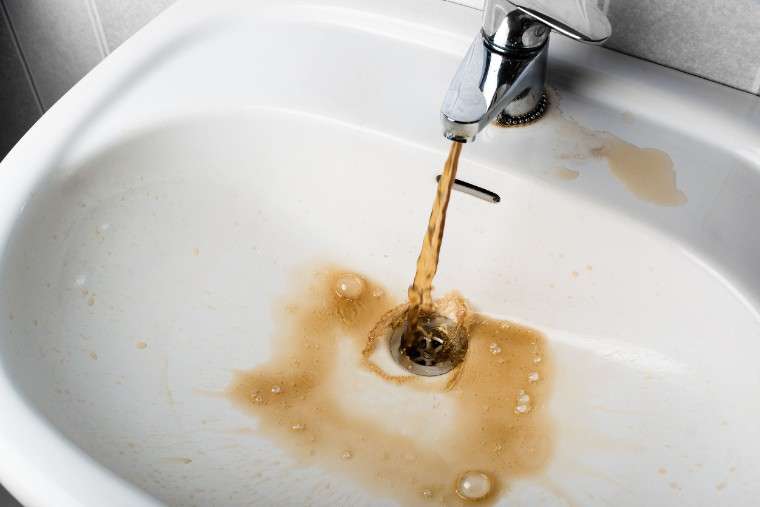CAMP LEJEUNE – CONTAMINATED WATER INJURY CLAIMS
Individuals who served at Marine Corps Base Camp Lejeune or Marine Corps Air Station (MCAS) New River in North Carolina may have been exposed to contaminants in drinking water. Individuals may have been exposed to certain volatile organic compounds (also referred to as VOC) and chemicals, specifically, trichloroethylene (TCE), tetrachloroethylene (PCE), trans-1,2-dichloroethylene (DCE), benzene and vinyl chloride. The United States Department of Veterans Affairs has previously stated the diagnosis of several illnesses is presumptively linked to exposure to contaminated drinking water at Camp Lejeune from August 1953 to December 1987.
INJURIES
Injuries that may be linked to Camp Lejeune contaminated water include:
Bladder Cancer
Kidney Cancer
Liver Cancer
Leukemia
Multiple Myeloma
Non-Hodgkin’s Lymphoma
Parkinson’s Disease
Adverse birth outcomes
QUALIFICATIONS
Wettermark Keith is currently investigating potential Camp Lejeune claims. To be considered for a potential claim you must have served at Camp Lejeune or MCAS New River in North Carolina for at least 30 cumulative (total) days from August 1953 through December 1987 and be diagnosed with one of the above-listed injuries.
Importantly, you or your family member may qualify for a claim even if you already collect VA benefits for your injury.

Trichloroethylene (TCE) is a VOC used in many industrial and commercial processes. It is useful in cleaning products, furniture care products, arts and crafts spray coatings, and automotive care products. TCE has been classified by the United States Environmental Protection Agency (EPA) as carcinogenic to humans by all routes of exposure.
Tetrachloroethylene is also sometimes known as perchloroethylene (PCE). PCE is often used in dry cleaning agents and as a solvent for metal degreasers. Like TCE, The EPA has determined that PCE is carcinogenic to humans by all routes of exposure. Some state agencies warn that OCE is to be handled with extreme caution and can cause reproductive damage.
Dichloroethylene (DCE) is classified by the EPA as a possible human carcinogen. DCE is used in the manufacturing process to produce food packaging materials and flame retardant coatings for fiber and carpet backing and in piping, coating for steek pipes, and adhesive applications.
Benzene is found both in the natural environment and in manmade applications. According to the Centers for Disease Control and Prevention (CDC), natural sources of benzene include volcanoes and forest fires, and is a natural part of crude oil gasoline cigarette smoke. Benzene also regularly ranks in the list of top 20 chemicals for production volume. It is used in a wide range of industries to make plastics, resins, nylon, synthetic fibers, detergents, lubricants, drugs, and pesticides. Exposure to benzene has been shown to cause numerous health effects such as cancer and anemia.
Vinyl Chloride is not a naturally occurring substance. It is produced industrially for certain commercial uses. The primary use of vinyl chloride is to produce polyvinyl chloride (PVC). PVC is used to make plastic products such as pies, wires, and cable coatings. Exposure to vinyl chloride is linked to an increased risk of developing cancers.
HOUSING AREAS AFFECTED
Several of the housing areas at Camp Lejeune may have been affected by water contamination, including:
Berkeley Manor
Hadnot Point
Hospital Point
Midway Park
Paradise Point
Tarawa Terrace
Watkins Village
Knox Trailer Park (Frenchman’s Point)
CAMP LEJEUNE ACT OF 2022
The law may not have adequately protected individuals injured by contaminated water at Camp Lejeune. In fact, the law may have excluded some claims entirely. Additionally, the United States Government could claim it is immune from being sued related to Cam Lejeune injuries.
However, in May 2022, a bill was passed that created an exception to the rule that the government is immune, or protected from, lawsuits. The Camp Lejeune Act of 2022 allows service members and their families to bring claims and seek compensation for injuries as a result of exposure to contaminated water at Camp Lejeune.
The Act establishes the following criteria for claims:
Individuals must have lived or worked or been exposed to water at Camp Lejeune for 30 cumulative (total) days from August 1, 1953 to December 31, 1987
Individuals must have been exposed to water provided by the United States
Individuals must have suffered an exposure-related injury.
WETTERMARK KEITH: THE TOP CHOICE CAMP LEJUNE ATTORNEYS IN BIRMINGHAM
For more than 20 years, Wettermark Keith has been helping Birmingham, Alabama residents get compensation for their injuries. We don't think it's fair for clients to fight against massive insurance companies and their lawyers alone. We work closely with each of our clients, ensuring they receive personalized attention. Our legal team cares about each of our personal injury clients. We believe that our clients deserve to get compensated for their medical expenses and lost wages. Hiring the right personal injury attorney in Birmingham can make or break your case. You deserve to receive compensation for your injuries.
Our firm has built a positive reputation in the industry through years of hard work, dedication, and real results. With offices in Alabama, Tennessee, and Florida, Wettermark Keith remains one of the top firms in the Southeast. We practice with care and compassion, telling our clients stories and making their voices known. Our success is in our strong relationships with our clients, based on constant communication and an unwavering dedication to truth and trust. Winning cases isn’t our goal - caring for you is. Winning is just how we show it. Do not hesitate to contact an attorney from Wettermark Keith if you have medical complications as a result of serving in or around Camp Lejune. Contact us today for more info and to see why we're the best lawyers serving Birmingham, Alabama.
IF YOUR LAWYER FROM WETTERMARK KEITH PRODUCES NO RECOVERY, THEN YOU PAY NO FEE
Many personal injury law firms will ask a client to pay money upfront to represent them. Not with Wettermark Keith. Clients don't pay anything until our firm wins your case. Our firm operates on a contingency fee basis, meaning you pay nothing unless we win your case. Any legal fees and associated costs will be collected from your winnings at the conclusion of the case. If your attorney is not able to obtain a verdict or settlement for your injury, you will not be charged any legal fees for their efforts.




